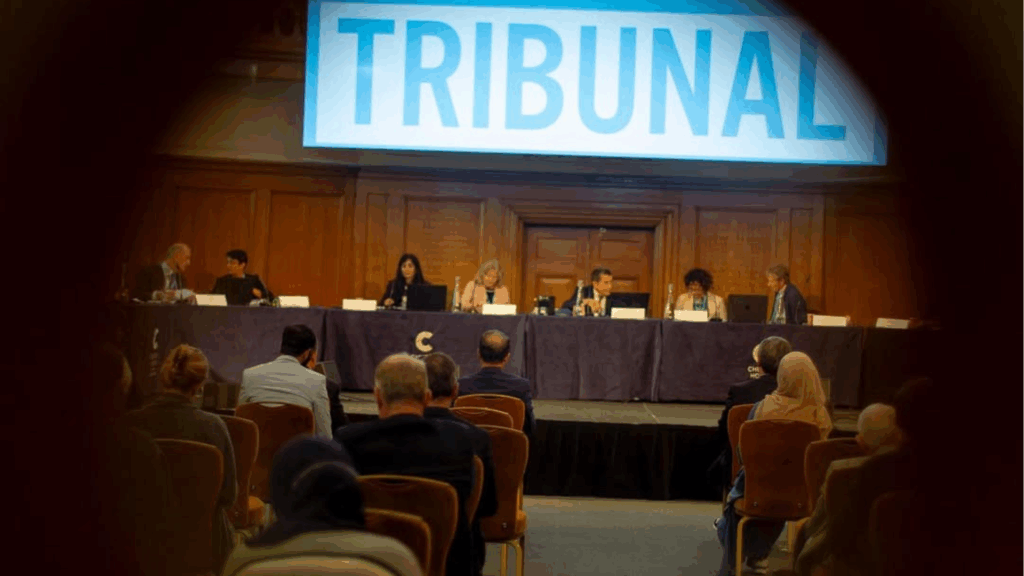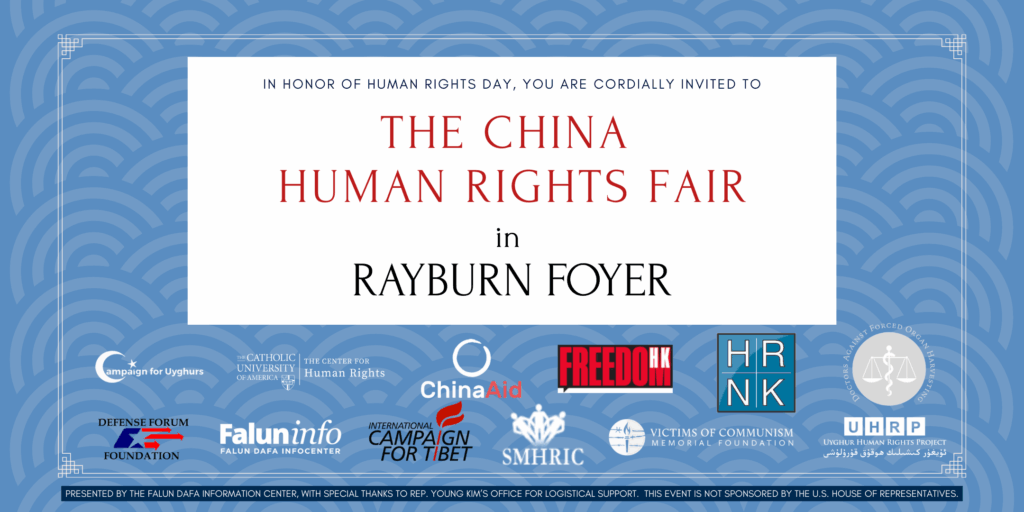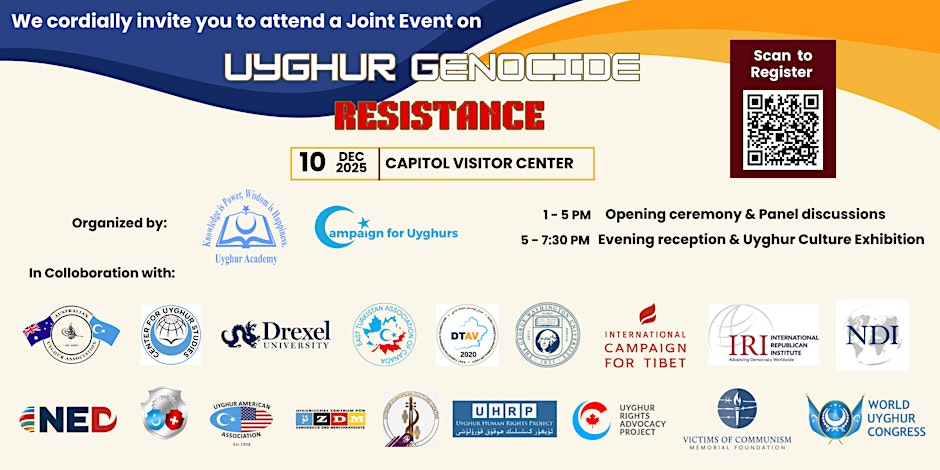Can Anyone Hear Us? Voices From The 2009 Unrest In Urumchi

Date: July 01, 2010
Time: 12:00 pm – 02:00 pm
Panel I – Can Anyone Hear Us? Voices from the 2009 Unrest in Urumchi from National Endowment for Democracy and a roundtable discussion on:
Uyghur-Han Tensions: Causes and Consequences
See original press release; more
On July 5, 2009, thousands of young Uyghur protestors, holding the red flags of the People’s Republic of China, peacefully took to the streets of Urumchi to protest against the beating and killing of several Uyghur migrant workers a week earlier at a toy factory in Guangdong province and to demand respect for the human rights of the Uyghur people. Two days later, according to Chinese government media, the death toll from street riots stood at 197 (of whom the vast majority were reported to be Han Chinese), with 1,700 injured. Chinese President Hu Jintao left the G8 Summit in Rome early and returned to Beijing to manage the unrest, one of the worst cases of inter-ethnic violence in the history of the People’s Republic of China.
In the aftermath of the violence, independent observers voiced concerns about a large number of deaths of Uyghurs as well as Han Chinese, as well as sweeping detentions of young men in Urumchi and other cities, with 26 death sentences and nine executions officially reported to date.
In advance of the one-year anniversary of the Urumchi unrest, analysts assessed the causes of the transformation of peaceful demonstrations into deadly inter-ethnic violence, government policy responses to the unrest, the effect of those policies on Uyghur and Han populations in Xinjiang, and the likely outcomes of the May 2010 Xinjiang Work Conference hosted by Chinese President Hu Jintao.
Agenda
2:00 – Report Launch:
Can Anyone Hear Us? Voices from the 2009 Unrest in Urumchi. What Happened? From July 5 through the September “syringe attacks.”
- Amy Reger, Researcher, Uyghur Human Rights Project
- Henryk Szadziewski, Project Manager, Uyghur Human Rights Project
**Special Feature: Testimony of two eyewitnesses
With comments by:
- Dr. Sophie Richardson, Advocacy Director for Asia, Human Rights Watch
- Clothilde Le Coz, Washington Director, Reporters Without Borders
Moderator:
Brian Joseph, Senior Director for Asia and Global Programs, NED
3:15 – Coffee Break
3:30 – Keynote Remarks:
Statement from Rebiya Kadeer, read by Omer Kanat, Vice President, World Uyghur Congress (see video/read statement :: more)
Mr. Carl Gershman, President, National Endowment for Democracy (see video :: more)
4:00 – Roundtable Discussion (see video :: more):
Chinese government policy, developments on the ground, international perspectives. Are the problems in Xinjiang and Tibet unique to ethnic minorities, or are there under-explored commonalities with other marginalized communities in China?
- Dr. Dru Gladney, President, Pacific Basin Institute
- Bhuchung Tsering, Vice President, International Campaign for Tibet
- Dr. Yang Jianli, President, Initiatives for China
- Hans Hogrefe, Democratic Staff Director, Tom Lantos Human Rights Commission
- Kara Abramson, Advocacy Director, Congressional-Executive Commission on China
- Dr. Sophie Richardson, Advocacy Director for Asia, Human Rights Watch
Moderator:
Louisa Greve, Vice President for Asia, MENA, and Global Programs, NED
5:30 – Close

UHRP Marks Uyghur Genocide Recognition Day 2025 with Call for Sustained Global Action

UHRP Co-Sponsored Event: China Human Rights Fair

Four Years After the Genocide Judgment: Reflections on the Uyghur Tribunal

Uyghur Genocide Resistance
FEATURED VIDEO
Atrocities Against Women in East Turkistan: Uyghur Women and Religious Persecution
Watch UHRP's event marking International Women’s Day with a discussion highlighting ongoing atrocities against Uyghur and other Turkic women in East Turkistan.
